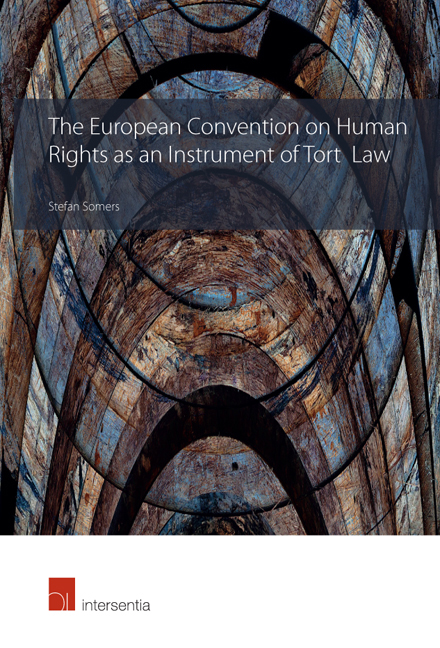Book contents
- Frontmatter
- Dedication
- Contents
- List of Cases
- Introduction
- Chapter 1 Human Rights in Horizontal Relations
- Chapter 2 Articles 13 and 41 ECHR and State Liability
- Chapter 3 The Interaction between Articles 13 and 41 ECHR and Liability in Horizontal Relations
- Chapter 4 Tort Liability as a Violation of Human Rights
- Chapter 5 Article 41 as an Alternative Tort Law System
- Chapter 6 General Outline of Article 41 of the Convention
- Chapter 7 Damages
- Chapter 8 Fault and Blameworthiness
- Chapter 9 Causality
- Chapter 10 Restitution
- Conclusion
- Bibliography
- About the Author
Chapter 10 - Restitution
Published online by Cambridge University Press: 31 January 2019
- Frontmatter
- Dedication
- Contents
- List of Cases
- Introduction
- Chapter 1 Human Rights in Horizontal Relations
- Chapter 2 Articles 13 and 41 ECHR and State Liability
- Chapter 3 The Interaction between Articles 13 and 41 ECHR and Liability in Horizontal Relations
- Chapter 4 Tort Liability as a Violation of Human Rights
- Chapter 5 Article 41 as an Alternative Tort Law System
- Chapter 6 General Outline of Article 41 of the Convention
- Chapter 7 Damages
- Chapter 8 Fault and Blameworthiness
- Chapter 9 Causality
- Chapter 10 Restitution
- Conclusion
- Bibliography
- About the Author
Summary
If someone proves he suffered damages that were caused by someone else ‘ s fault, national tort law will redress his damages. Restitution is the remedy in national tort law, whereas damages, fault and causality are the applicability criteria. For this reason, damages and restitution, although they are entangled with one another, should be differentiated from one another. There are two good reasons for this. The first reason is that it is necessary from a procedural perspective to separate the finding of the existence of damages from the assessing of the size of the damages. The second reason is that there does not have to be a one-to-one relationship between the size of the damages and the size of the restitution. The law can depart from this idea.
THE PURPOSE OF RESTITUTION
When the ECtHR grants just satisfaction under Art. 41 of the Convention, it aims to put the human rights victim as far as possible in the situation in which he would have been if the Convention violation had not occurred. By doing so, the Court seems to apply restitution in the same way as is done in national tort law. Nevertheless, there seems to be one difference. In national tort law, an injured party has a right to full compensation (the so-called restitutio ad integrum) if all the criteria are met. The Court on the other hand argued in one case that applicants do not have a right to receive a just satisfaction under Art. 41. In another recent case, it argued that it enjoys a certain discretion in its powers under Art. 41 so that it can, taking into account the particular features of a case, decide to award less than the value of the actual suffered damages. It thus seems as if the Court can decide on a discretionary basis whether or not an applicant can receive just satisfaction. One can however question the existence and the legitimacy of such a discretionary power. Several arguments can be invoked against it.
First of all, under Art. 41 the Court requires full compensation: restitution in integrum.
- Type
- Chapter
- Information
- Publisher: IntersentiaPrint publication year: 2018



